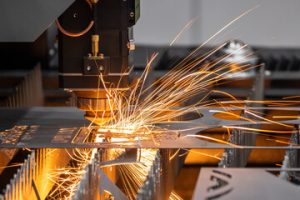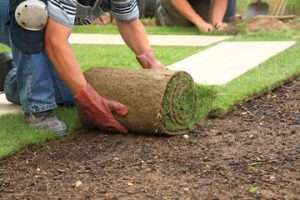Money tells stories that numbers alone cannot explain. Every decision about saving or investing reveals how people dream, plan, and adapt. Dow Janes Review have sparked curiosity because they focus on something deeper than profit—they focus on the person behind the plan. This approach has encouraged a new wave of financial learners to rethink what growth really means.

The rise of programs like this has shifted the idea of finance from complex charts to simple actions. Instead of focusing on what most people fear about money, the emphasis now lies on understanding behavior. Reviews often highlight how confidence grows when learning becomes relatable. This is where Dow Janes stands out—not just by teaching finance, but by making people feel capable.
The movement toward inclusive financial education is part of a bigger shift. People want to understand how money affects every aspect of their lives. Dow Janes reviews consistently mention how this approach blends emotional awareness with practical knowledge. The blend creates a balance between structure and compassion that resonates with many.
Some discussions go beyond results and explore transformation. Reviewers describe how lessons on budgeting, planning, and investing have also inspired introspection. They talk about letting go of guilt around spending and finding motivation to build sustainable habits. This emotional clarity becomes a silent strength that drives financial success.
Interestingly, the reviews also reveal that people are drawn to community-driven learning. Rather than following isolated advice, participants value shared growth. This collective spirit helps normalize mistakes and celebrate milestones. It turns financial learning into something human and approachable.
One of the newest insights from recent discussions is how adaptability has become central to progress. Traditional systems often overlook the realities of unpredictable lives. Dow Janes reviewers emphasize that flexibility matters as much as discipline. They appreciate how lessons adjust to shifting priorities and unexpected challenges.
In modern finance, personalization has replaced rigid formulas. Many reviews highlight that the structure allows each participant to align lessons with their lifestyle. The approach encourages people to define success on their own terms. That sense of ownership transforms knowledge into empowerment.
Another emerging theme is sustainability—not just financial, but emotional sustainability. Reviewers point out how burnout from constant saving or over-control can be counterproductive. The approach instead teaches balance and purpose. This perspective makes financial wellness feel like self-care rather than sacrifice.
Dow Janes reviews also explore the subtle power of storytelling in finance. Numbers may inform, but stories inspire. Reviewers note that hearing experiences from others motivates them to continue when they feel stuck. It reminds them that financial progress is rarely linear but always meaningful.
There is also increasing attention to long-term mindset shifts rather than quick gains. Reviews show that people value education that evolves with them. The ability to revisit lessons as goals change builds lifelong resilience. That adaptability defines what makes modern financial education enduring.
Some reviews discuss how this kind of approach redefines wealth altogether. Wealth becomes not just accumulation but awareness. It includes time, health, and freedom as part of prosperity. This broad understanding of value helps people set goals that feel authentic rather than forced.
One intriguing aspect of recent feedback is the psychological shift that occurs after consistent learning. Participants describe improved confidence not just with money, but with decision-making in general. They trust themselves more and feel less anxious about uncertainty. This ripple effect extends far beyond the balance sheet.
Financial education has often been criticized for being intimidating. Yet Dow Janes reviews emphasize accessibility. They reveal that tone and language matter as much as technical content. A welcoming approach encourages participation rather than fear.
In many testimonials, people discuss their renewed relationship with risk. Instead of fearing it, they learn to understand and manage it. That awareness turns fear into foresight. It transforms uncertainty into opportunity.
Another new trend seen in reviews is the emphasis on identity in financial growth. People recognize that social expectations influence how they spend or save. The lessons encourage reflection on these external pressures. This awareness helps learners make choices that align with their genuine priorities.
Technology plays a supporting role, according to newer reviews. Digital tools make learning more interactive and adaptable. Yet, participants appreciate that the focus remains on understanding, not just automation. The blend of digital accessibility and human-centered teaching strengthens retention and trust.
Some reviewers have even drawn parallels between personal finance and self-development. The lessons encourage patience, accountability, and mindfulness. As people learn to handle money, they also learn to handle themselves better. The growth feels holistic, connecting emotional intelligence with financial literacy.
Interestingly, a number of reviewers mention how learning about finance has improved their relationships. Transparency about money fosters trust. It opens space for honest discussions about shared goals and boundaries. This dynamic helps reduce tension and promote teamwork.
The new generation of financial education consumers looks for relevance more than tradition. Dow Janes reviews reflect this evolution. They show how modern learners value context, empathy, and flexibility over authority. This preference is reshaping what financial mentorship means today.
Some reviewers have commented on the emotional milestones that accompany financial ones. The joy of paying off debt or saving consistently often feels deeply personal. These wins represent growth beyond numbers—they symbolize regained control and freedom. Such emotional validation sustains long-term discipline.
The reviews also suggest that community accountability creates steady progress. Learners stay motivated when they feel part of a network that celebrates their journey. This dynamic reinforces positive behavior and reduces the shame often associated with financial mistakes. It turns money management into shared empowerment.
As new reviews appear, there’s growing appreciation for the integration of mindset and strategy. The two are inseparable—without mental readiness, technical knowledge falters. Dow Janes reviews repeatedly emphasize that balance as the key to lasting results. This insight has redefined how people measure success in financial education.
One review highlighted that reflection is now seen as productive, not passive. Taking time to understand spending habits or emotional triggers is encouraged. This slower approach often leads to faster results in the long run. It replaces impulsive fixes with thoughtful consistency.
The approach also challenges the culture of comparison. Many reviewers mention how freeing it feels to focus on their unique pace. Financial growth becomes less about outperforming others and more about alignment with personal goals. That shift cultivates peace of mind.
A subtle but powerful insight from newer testimonials is the rediscovery of gratitude. As people gain control over their finances, they also appreciate what they already have. Gratitude becomes a stabilizing force that prevents overconsumption. It builds contentment alongside ambition.
Another important point raised in reviews is the value of transparency in teaching. Participants appreciate honesty about what works and what doesn’t. This authenticity builds trust and keeps expectations realistic. It makes the learning process collaborative rather than directive.
Dow Janes reviews also hint at a growing desire for intergenerational learning. Some participants express plans to share their lessons with family members. This transfer of knowledge sustains financial literacy across generations. It transforms learning into legacy.
Over time, the reviews have evolved from curiosity to advocacy. Many participants become ambassadors for mindful financial living. They emphasize that knowledge multiplies when shared. The sense of purpose behind this movement continues to inspire others.
The emotional tone of the reviews has also changed over time. Early feedback focused on structure and clarity, while recent ones focus on empowerment and identity. This evolution reflects how financial learning adapts to shifting cultural needs. It reveals an ecosystem in constant growth.
Some recent reflections also explore how confidence can coexist with vulnerability. Learners admit to setbacks while celebrating progress. This honesty encourages realistic expectations and sustainable habits. It turns imperfection into inspiration.
Dow Janes reviews collectively paint a picture of transformation that goes beyond finance. They capture how learning about money becomes a gateway to self-awareness. The lessons reshape how people perceive value, effort, and fulfillment. This human-centered vision makes financial literacy a lifelong journey rather than a single destination.
The narrative continues to evolve as more participants share their voices. The reviews act as both testimony and conversation, bridging numbers with emotions. In doing so, they remind everyone that money is not just a system—it is a reflection of choices, values, and growth. That realization makes every review not just an opinion but a story of renewal and purpose.



